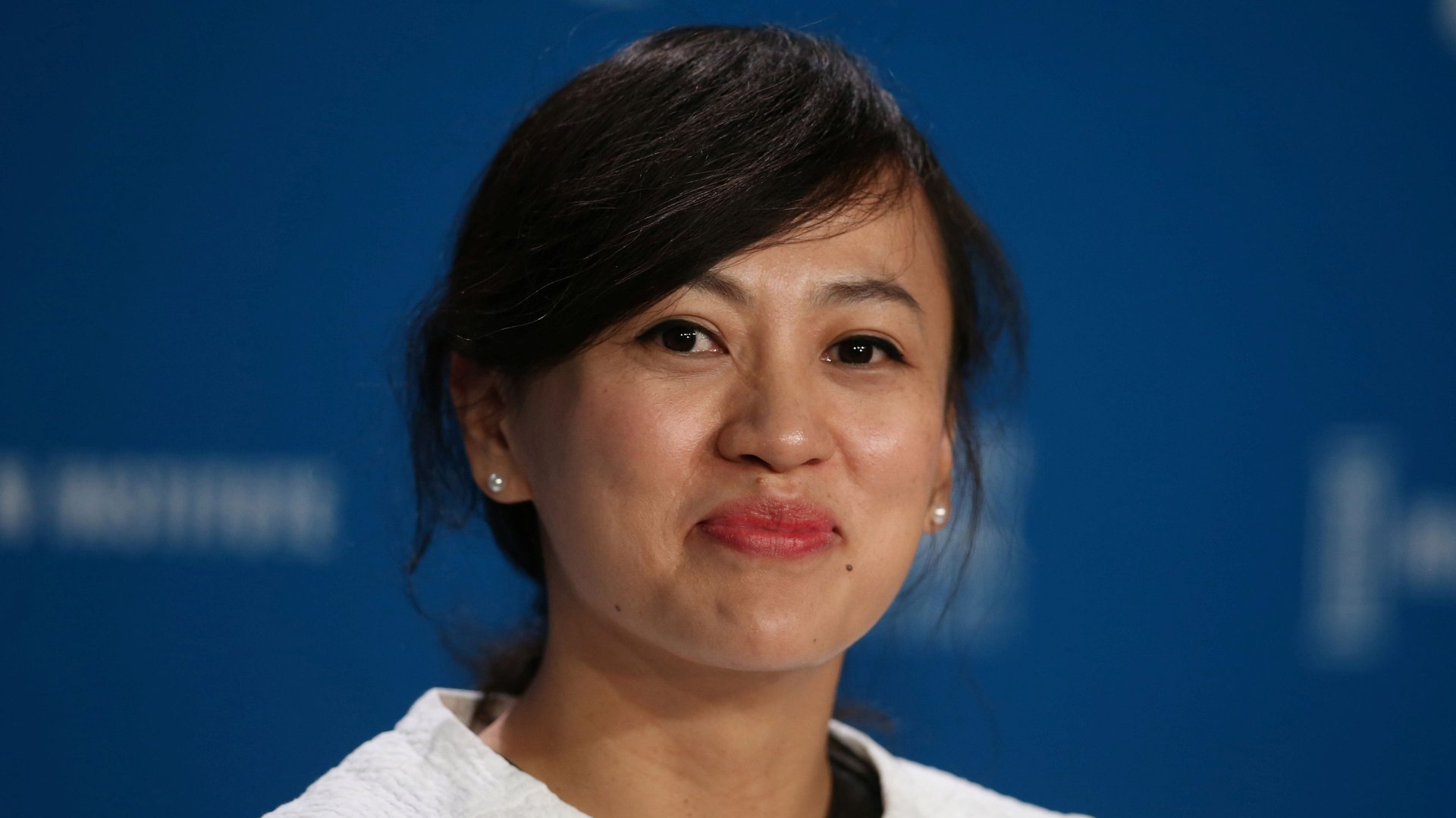Softbank has spread its ride-hailing bets and Didi looks like an early win
Chinese ride-hailing giant Didi Chuxing could pursue an initial public offering as soon as this year, the Wall Street Journal reported today (April 24):


Chinese ride-hailing giant Didi Chuxing could pursue an initial public offering as soon as this year, the Wall Street Journal reported today (April 24):
The Beijing-based company has in recent weeks been in talks with bankers about the feasibility of tapping the public markets for cash in the second half of 2018, as it looks to amass a large war chest to fend off rivals in China and other countries, the people said.
Didi—which operates China’s largest ride-sharing platform and is expanding in Latin America and other parts of Asia—is hoping to fetch a valuation of at least $70 billion to $80 billion if it goes public, one of the people added.
A 2018 offering would put Didi well ahead of Uber on the IPO timeline, which under co-founder and former chief executive Travis Kalanick planned to go public “as late as humanly possible,” and which under current CEO Dara Khosrowshahi is targeting a debut in 2019. Didi is facing intense competition in its home market, and a public offering would be one route to raising the cash needed to protect its position.
Didi is at the center of the ride-hailing web that it and its investor SoftBank have spun. Didi has invested in Lyft, Uber through the deal they cut in August 2016, Southeast Asia’s Grab, India’s Ola, and the Middle East’s Careem. It put $100 million into and later acquired Brazil’s 99. Didi was last valued at $57 billion during its $4.6 billion financing in December 2017, and is reportedly in talks with South Korea’s Mirae Asset Financial Group to raise an additional $263 million.
SoftBank also has a stake in most of these ride-hailing companies, positioning it to broker truces and alliances between regional players, like Uber’s recent sale of its Southeast Asia operations to Grab. According to data from industry research firm PitchBook, SoftBank has invested five times in Ola, four times in Didi, four times in Grab, once in Uber, and once in 99. It’s unclear how much these investments total, but they are well into the billions. SoftBank is playing the ride-hailing version of Risk, but it also owns a piece of all the players. So long as a single company controls a country or region, so that it’s not burning money to compete, SoftBank seems likely to be happy with the outcome.
That said, insofar as SoftBank has picked a single winner, it seems like Didi. It’s notable that Didi has continued to expand globally even as Uber has now repeatedly withdrawn from key international markets, first in China, then Russia and most recently in Southeast Asia. SoftBank has also not-so-subtly hinted that it would like to see Uber retreat. Rajeev Misra, a SoftBank board director who also sits on Uber’s board, told the Financial Times in January that Uber should focus on its core markets, which he identified as the US, Europe, Latin America, and Australia. Uber CEO Dara Khosrowshahi said Uber would “invest aggressively” in the Southeast Asia business about a month before it sold to Grab.
Even Misra’s vision of an Uber retreat might now be in Didi’s favor. The Chinese company said Monday (April 23) that it would launch in Mexico, intensifying its battle with Uber for Latin America. Didi is recruiting drivers until mid-June with a zero commission model (i.e., drivers keep all their earnings) and, after that, said it would take 20% of the fare compared to Uber’s 25%. Latin America is one of Uber’s strongest and least contested markets, making a challenge from Didi especially unwelcome.
While it’s too soon to know what will happen, the idea that SoftBank has picked Didi as its favorite should be deeply troubling to Uber. If Didi and its affiliates (Grab, Ola, Careem, 99) lock up most of Asia, the Middle East, and Latin America, Uber would be left with Australia, the US, and Europe. There will always be plenty of competition in the US from Lyft, other ride-hailing startups, and automakers, and Europe from Uber’s perspective is a mess of regulations and worker protections. That doesn’t mean those places can’t do good business—Uber says Europe, Australia, and New Zealand contain some of its most profitable markets. But they aren’t necessarily the biggest and most profitable the world has to offer. Down the road, Uber’s 27.5% stake in Grab and 17.7% stake in Didi might be what really let it cash in.
This post was updated to include additional information from Uber.